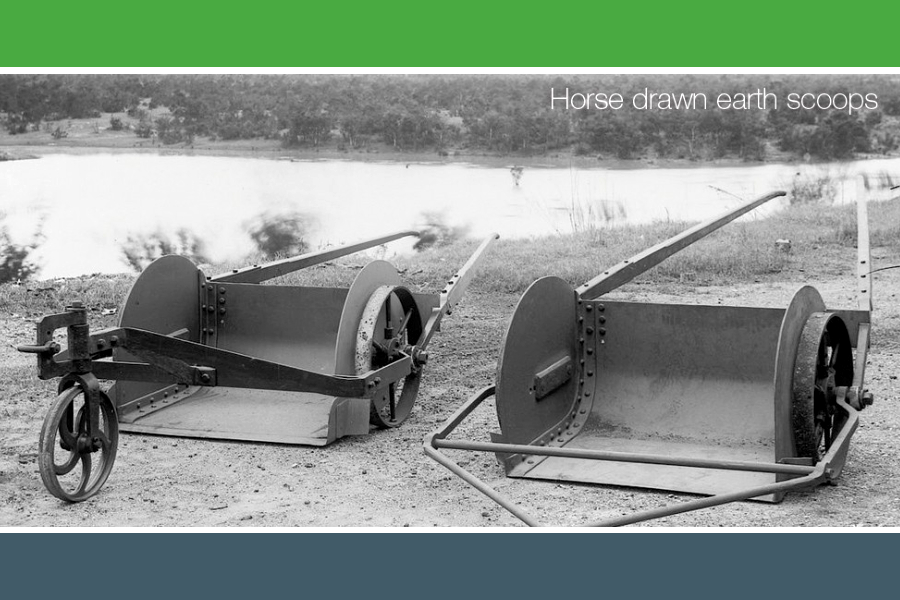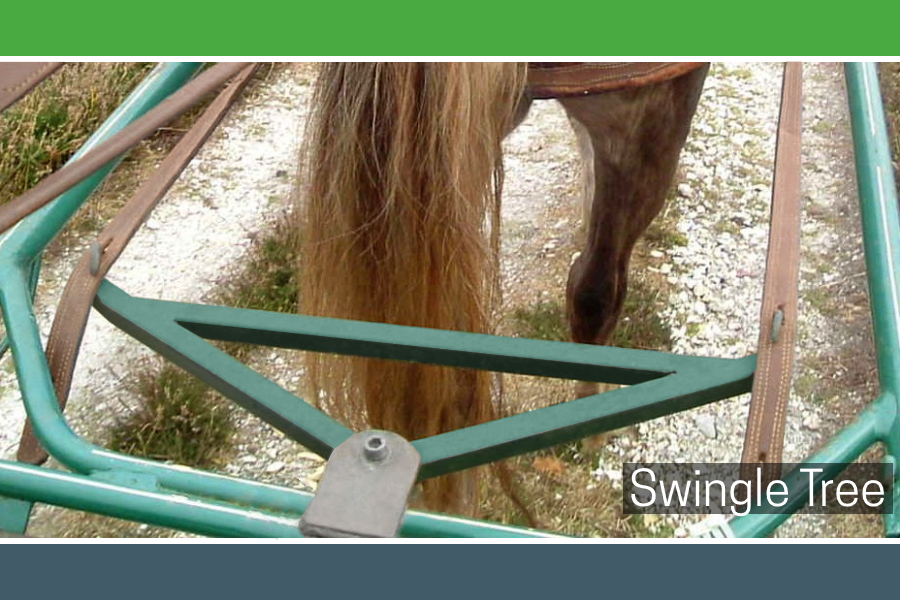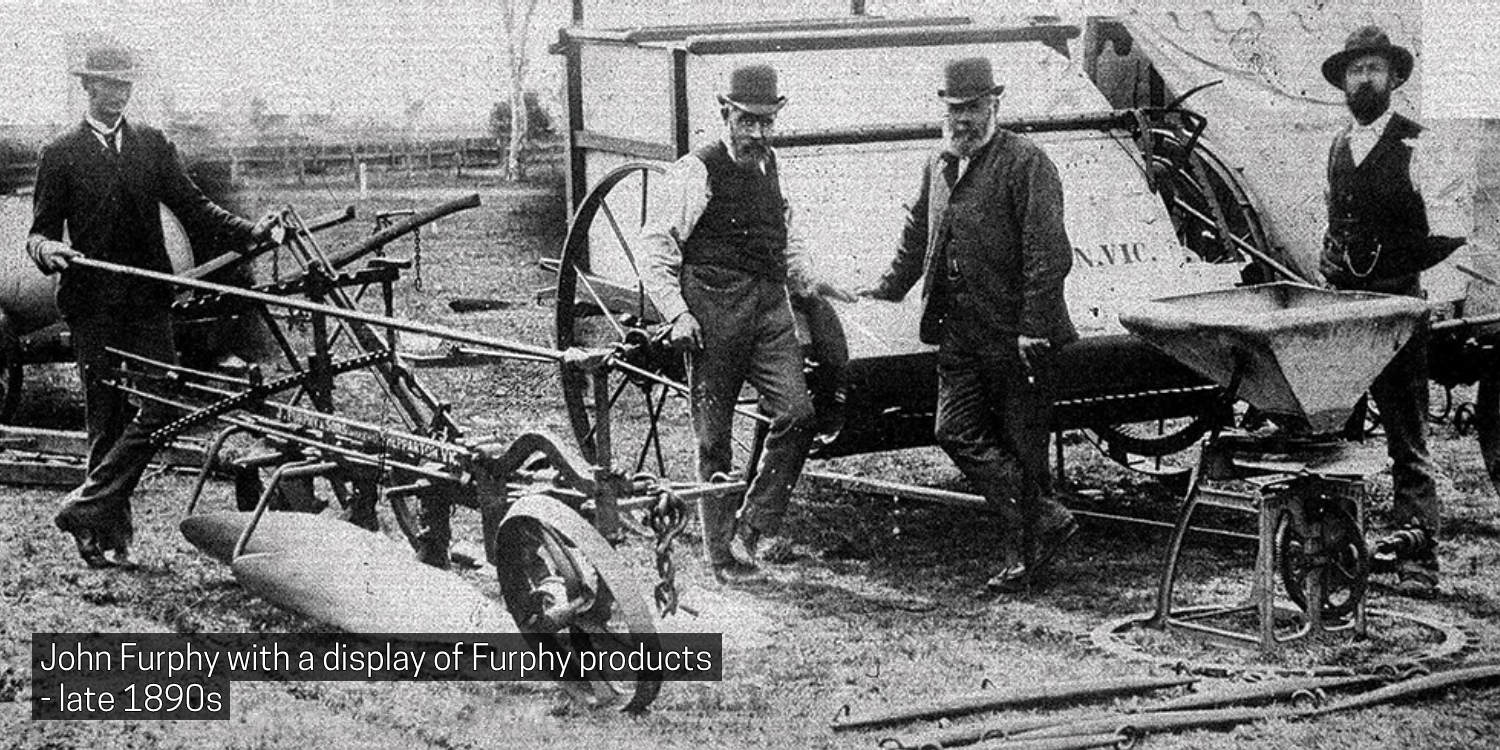By the 1900s, Furphy had evolved from a blacksmith/wheelwright shop to a foundry, thanks to the addition of a Cupula Furnace.
The 38 employees were creating a range of cast iron products, mostly used in farms across Victoria and the Riverina areas of New South Wales.
These products graphically demonstrate the incredibly physical nature of farming 100 years ago, and how critical it was for farmers to own strong, dependable horses.
Earth scoops were used to prepare land for farming, dig trenches or to move earth from one place to another.
Clod crushers were used to break up tough land. The outer circumference of each cast-iron disk was formed into teeth, which crushed and disintegrated clods as they rolled over the surface. Every alternate disk had a larger hole for the axle, causing it to rise and fall while turning over, and thus preventing disks from clogging.
Swingle trees were an important item that allowed farmers to connect such contraptions to horses. It is a metal bar used to balance the pull of a draught horse or other draught animal when pulling implements.
The rigorous use of these implements early last century required a commitment to build quality to guarantee long life. That same commitment remains with Furphy Foundry today in regard to its entire range of street and park furniture.








